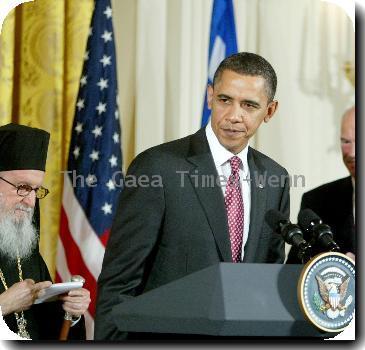New Zealand reverses opposition to UN declaration on indigenous rights, US reviewing stance
By Edith M. Lederer, APMonday, April 19, 2010
New Zealand backs indigenous rights, US to review
UNITED NATIONS — New Zealand on Monday announced its support for a U.N. declaration protecting the rights of more than 370 million native peoples worldwide, and the United States is set to announce that it will review its opposition to the declaration.
The declaration affirms the equality of indigenous peoples and their right to maintain their own institutions, cultures and spiritual traditions. It also establishes standards to combat discrimination and marginalization and eliminate human rights violations against them.
When the General Assembly adopted the declaration in September 2007, there were four opponents — the U.S., Canada, Australia and New Zealand — who argued that it was incompatible with their existing laws.
Australia announced its support for the declaration in April 2009, and New Zealand’s Minister of Maori Affairs Pita Sharples announced his government’s approval at Monday’s opening session of the U.N. Permanent Forum on Indigenous Issues, which about 2,000 native peoples are attending.
U.S. Ambassador Susan Rice is scheduled to address the forum on Tuesday and will announce that “we will be conducting a formal review of the declaration and the U.S. position on it,” according to an excerpt from her prepared text obtained by The Associated Press.
“Our first nations face serious challenges: disproportionate and dire poverty, unemployment, environmental degradation, health care gaps, violent crime and bitter discrimination,” Rice says. “We recognize that, for many around the world, this declaration provides a framework for addressing indigenous issues.”
The Canadian government said in a speech by the governor general last month that it would take steps to endorse the U.N. declaration “in a manner fully consistent with Canada’s constitution and laws.” Indigenous groups have urged the government to embrace the human rights instrument without conditions or limitations.
The declaration, which is not legally binding, was approved by the 192-member General Assembly after more than 20 years of deliberation. The vote was 143-4, with 11 abstentions and 34 countries not voting.
It calls on states to prevent or redress the forced migration of indigenous peoples, the seizure of their land or their forced integration into other cultures. It also grants indigenous groups control over their religious and cultural sites and the right to manage their own education systems, including teaching in their own languages.
The opponents and many countries that abstained said they wanted to work toward a solution, but they took exception to several key parts of the declaration which they said would give indigenous peoples too many rights and clash with existing national laws.
New Zealand’s Sharples said that “when voting took place in 2007, Maori — my people — were hugely disappointed that our country had voted against it and since that time many Maori have been working” to reverse the government’s position.
Tonya Gonnella Frichner, a North American member of the Permanent Forum and founder of the American Indian Law Alliance, said she is “hopeful” that both Canada and the United States will support the declaration.
During President Barack Obama’s campaign for the White House, she said, “he did state very clearly to indigenous leaders here in the United States that he was committed to the adoption of the declaration, … so we still feel very positive about that and hope that he will commit to that promise.”
Tags: Australia And Oceania, Barack Obama, Canada, New Zealand, North America, United Nations, United States

